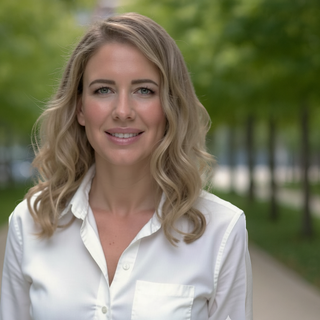Suzi's journey with macular degeneration
Suzi's story of living with macular degeneration.

Suzi first noticed her vision changing back in the early 1990s. At the time, she thought it was something small - maybe mist on the bathroom mirror or a dirty contact lens. “I took it out, cleaned it with solution, and put it back in,” she recalls. “But I realised I still couldn’t see clearly.”
That moment marked the beginning of Suzi’s journey with macular degeneration. Like many people, Suzi was suddenly navigating a future she hadn’t expected - one that would mean adapting emotionally, socially, and practically to changes in her sight.
Professor Andrew Chang, Suzi’s ophthalmologist, sees this story play out often.
“As a retina specialist, I treat patients with conditions such as macular degeneration and diabetic retinopathy,” he explains. “We have wonderful treatments now, but even after we’ve done everything medically, many people are left with permanent loss of vision. And with this comes much uncertainty.”
Frances, a nurse who works closely with Professor Chang, adds: “It’s not just about the eye condition. People need space to process what’s happening to them, and support in adapting their daily lives. That lifestyle side is just as important as the clinical care.”
For Suzi, one of the hardest parts early on was the uncertainty.
“A lot of people offered to help and asked me what I needed,” she says. “But I didn’t know what I needed. I didn’t have an answer for them.”
Over time, she found that the most valuable support wasn’t necessarily someone doing things for her, but people helping her find ways to keep doing things herself. “For me, my family and friends are really important. Staying connected meant learning new skills - even something as simple as using FaceTime. It took me a while to feel comfortable with that, but it’s made a huge difference.”
Suzi’s reflections highlight a common theme for many people adjusting to permanent vision loss: the importance of emotional processing and lifestyle support. Medical treatment is only part of the picture, being able to talk through the changes, learn new strategies, and maintain or regain confidence in everyday life is what helps people keep their independence and sense of self.
Your lived experience with vision changes might be exactly what someone else needs to hear. Whether it's a tip, a story or something you've experienced or learnt along the way, if you'd like to share, we'd love to listen. Write or call us at:
Did you find this article helpful?
Share your thoughts and help us make our resources better for everyone.
Enjoying the content?
Start building your profile to access personalised support, resources, and tools tailored to your eye health journey.
